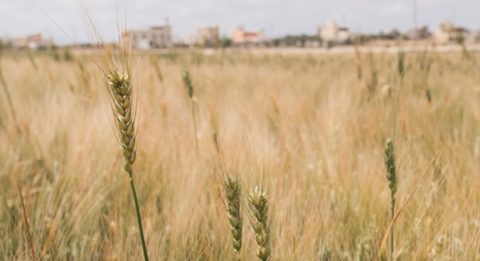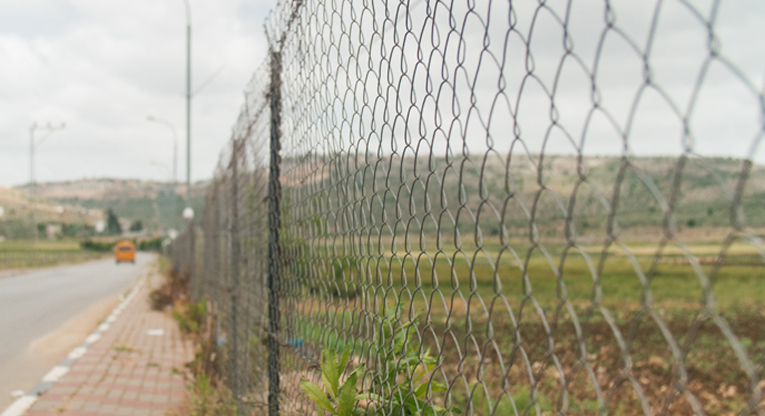A fence saved this Palestinian region’s bread basket – the income secures higher education for ”iron lady’s” children
In the Palestinian regions, farming is one of the main sources of income for women, and a gateway to education for young people. Before Finn Church Aid’s (FCA) project, the people of Deir Ballout were on the brink of despair.
Cucumbers, okra, tomatoes, pumpkins, onions and plenty of grains. The fields spread out a long way to the left and right of the asphalt road leading to the village of Deir Ballout. A donkey is braying on 48-year-old Ibtisam Musa’s neighbour’s yard. It’s almost 11 AM, and around this time she usually prepares a meal.
”Normally I’m out in the field from 6 to 10 in the morning, and from 5 to 8 in the evening. When it’s this cloudy, though, the scorching sun doesn’t bother me,” shares Musa while doing some weeding.
Deir Ballout is called the bread basket of Salfit Governorate, home to 65,000 people. In addition to the crops, the farmers prepare and sell products such as couscous, honey, olive oil, cheese and za’atar spice blend.
However, the main product is Armenian cucumber, known among the locals as ‘snake cucumber’. According to Musa, everyone knows Deir Ballout for its snake cucumbers, and every year the village holds a festival to honour the plant.
”In the future, we’re also planning on trying to grow medicinal herbs,” says Musa.
For years, the farmers were unable to dream about the future. Before the collaboration with FCA that started in 2015, the villagers were desperate. Wild pigs had spread out in the area, and before long, destroyed crops were threatening to rob the locals of their work and self-sufficiency in food production.
”The wild pigs destroyed almost everything. Many people left their fields in search of other employment,” she says.

Deir Ballout is known as the bread basket of Salfit Governorate. Here, there’s a total of 1,2 km2 of fields, spreading out on each side of the road to the village. Photo Tatu Blomqvist
The ones to suffer firsthand were the women, who are in charge of most of the farming in the Palestinian regions. Musa is a member of a cooperative of 21 people, almost all of whom are women. Her income plummeted from over 7,000 euros a year to about 1,200 euros.
With support from FCA, the villagers solved the problem by building a fence around the fields last summer. The farmers returned, and one year on, the crop has been spared from the wild pigs. Musa’s income is returning to normal. She also praises the project itself for its effect on the community of 5,000 people.
”The building of the fence was carried out as a volunteer project. The success inspires the community to do more volunteer work, and it has increased our productivity”, says Musa.
With her income, Musa has paid for her children’s education. She has two sons and six daughters. Two of her children have graduated as engineers, one as a lawyer, and one as a teacher.
Musa has worked hard for her children’s education and earned the nickname “iron lady” from the other villagers.
”Our children are highly educated. Deir Ballout has produced doctors, ambassadors and members of parliament, working both here and abroad. It’s all thanks to our perseverance.”
Text: Erik Nyström, Photos: Tatu Blomqvist

Finn Church Aid has helped the village of Deir Ballout to build a fence. Thanks to the fence, the farmers’ income is returning to normal. Photo: Tatu Blomqvist